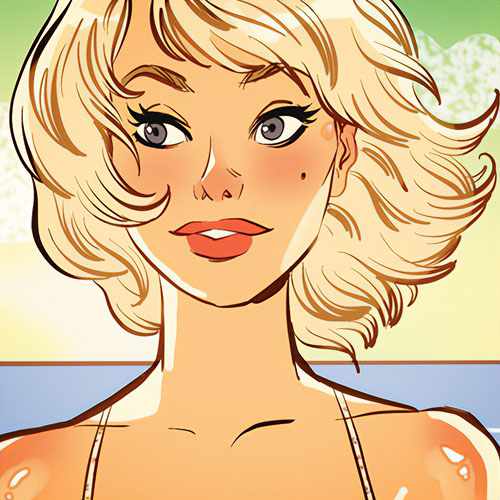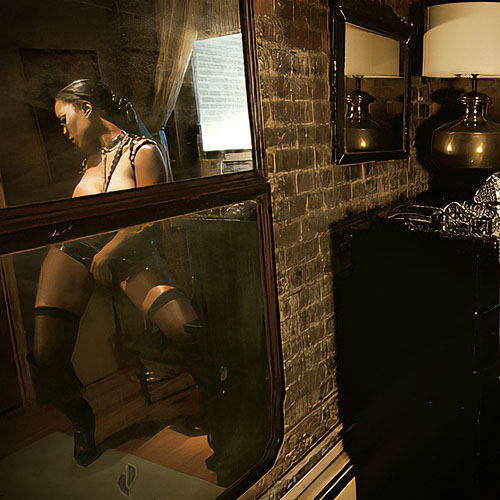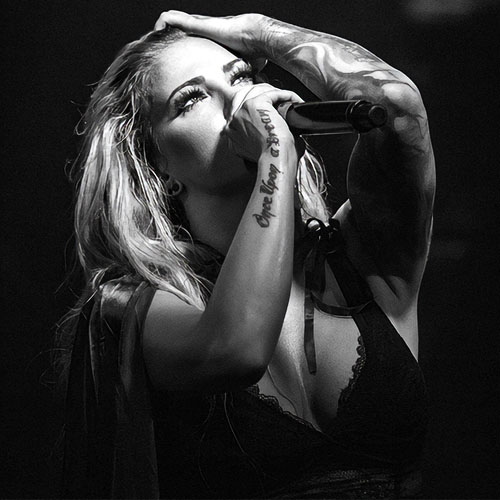Irvine Welsh broke through big-time with the publication of Trainspotting in 1993. The book shocked readers with its raw depiction of young, working-class Scottish friends shooting heroin and searching for kicks in an oppressive, Thatcher-era U.K. When the 1996 movie came out, Republican presidential candidate Bob Dole accused it of glorifying drug use and celebrating moral depravity. Twenty-five years, 15 books, and five movie adaptions later, the Edinburgh-raised Welsh is still doing his thing. His new novel, Dead Men’s Trousers, which revisits the Trainspotting crew as middle-aged men, is as power-packed as his debut.
Penthouse talked to Welsh about his literary career, his punk bands, and his new book.
You began as a musician, right?
It wasn’t much, really. Just a lot of fucking around. With the punk scene in London, everybody wanted to be in a band. It was just kids playing instruments and writing songs and making noise. I got involved because I was interested in music, but there wasn’t a lot going on in Edinburgh. Not a lot of people interested in making music. A bunch of people who were pretty much the same as me. We were on the scene. We used to congregate around these bars. Scotland was just like any other place.
I started off playing guitar and kind of sang, but I wasn’t a good guitarist and I wasn’t a good singer. I switched to bass and I wasn’t a good bass player. If we had a good drummer, I could never keep time with him. It’s like if you play soccer. I’m the kind of guy that wants to play in the World Cup. I don’t want to play in the pub league. As a musician, I wanted to play in the Hollywood Bowl.
I came to the conclusion that if you wanted to make an impact, you have to be good at it. I always wanted to do something artistic and make that impact. The music was for pure enjoyment, but it wasn’t reaching anybody. In a way, it was just about trying to imitate the music that I liked. Eventually, I switched to writing, and here we are. The creativity was there — I was just trying to find the right vehicle for me.
What made you leave Edinburgh in 1978?
We heard about the punk scene in London and I finally went down there. Meeting people, going to gigs, doing stuff together. I was in a couple of punk bands with a couple of friends. I was always fucked up and got kicked out of a lot of bands. It was because of that that I never really played music professionally. I could never quite get it to come out how I wanted it to.
I was lucky because my auntie was down there. She doted on me. It was like a second home for me. I was spoiled in a way. It wasn’t like I was living on the mean streets of London, squatting and the like. It gave me a way to go out and get involved with the bands. It was always a collaboration, and I was always the person that people wanted to collaborate with. I had a lot of ideas. I wasn’t very capable musically, but my ideas were strong. I used to write ballads. It was stories set to music. That was how I became a writer. Writing ballads and eventually getting rid of the music.
What did music mean to you back then?
When you grow up in Scotland, it’s a very political culture. Music is such an emotional thing. It made me want to express myself. That’s why I started playing in bands in the first place and eventually started writing. Music is about beautiful songs and these amazing principles. It goes through this whole range of human emotions. It reflects on the cultural ideas and beauty of the people who are making it. That is very important, from my point of view.
It’s interesting because technology now takes away a lot of these things, and that kind of takes the barriers down. You can have concepts and ideas and make them a reality. It’s so much easier to realize your ideas and get them out there than it was back when I wanted to do it. If I was a kid now, I probably would be involved in something like that because of the technology.
Do you have a favorite artist?
David Bowie is obviously the main influence for my generation. What he did is make a road map of what’s cool. It wasn’t just entertainment and good music — he really kind of liberated us all. He got me into the Velvet Underground and Iggy Pop. He got me into soul and more. He shared his enthusiasm. By sharing his life experiences in his music, he defined what my generation and culture has become. He influenced punk rock and performance rock — even Lady Gaga and Madonna and all that. He’s a huge influence on me and who I am.
Can you talk about the role of music in your books?
I try to replicate how music sounds in my writing — with the characters and how they interact with others. The characters kind of come alive through the music. I have playlists for certain characters. In my writing, I always wanted to have the impact music had on me. Particularly in the early days. The characters make all kinds of references to music in these books. I would make playlists and play these songs as I wrote, and it really helped to bring it all together.
What’s it been like to branch out into musicals and plays?
I did a musical called Blackpool with Vic Godard of the band Subway Sect, and also Creatives with [composer] Laurence Mark Wythe in Chicago. It’s just fantastic to condense the ideas that you have into a musical. Nobody can be an expert in every art, but the idea is kind of independent of form. When you realize the idea can take shape and flourish as a film, a novel, a play, or even a musical, it’s amazing. If you can find someone to collaborate with that can help you to bring that idea to life, it’s great.
The nature of your books has made you a literary rock star. Ever feel pressure to live up to the hype?
Everybody wants to get fucked up with me. They give me drugs and drinks all the time. When I go out to the clubs, everybody always wants to party with me. When I was younger it was awesome, but then I got a bit fed up with it. It’s always nice to be asked to party and the like, but sometimes you don’t feel up to it.
What are you most proud of in your career?
I think when I look back, it’s about meeting people. When you’re under a lot of pressure, you don’t always come across as good as you can. It’s very rare that I’ve acted like a total asshole. That’s the thing I’m most proud of. It’s quite easy to be standoffish or whatever, but I’ve always tried to make time for people. And in my position, it’s not always easy to do that. I didn’t always deal with that so well, but I’ve gotten a lot better. These are the things that stick with you, and these are the things that define who you are.
Any regrets in life or professionally?
Not really, no. I don’t regret the things I’ve done, but sometimes it’s the things that I haven’t done. There are places I haven’t traveled to and stuff of that nature. Certain things that I would have liked to get involved in. But other than that, I don’t really have any regrets. I’m not the kind of guy that’s big on that. You can only be the way you are. I don’t consciously try to get attention with comments and whatnot. I just fire things out, and that’s the way it comes out.
What music are you listening to today?
I started DJing again. I listen to a lot of techno and house. It’s a weird thing — most of the guys into DJing house music are older. All these old-school house parties, it’s kind of crazy. It’s nice to do that again. I’m usually one of those guys at the club listening to the music all night.
Who’s your favorite Trainspotting character?
I think maybe Spud or Tommy because they’re basically good guys. Renton is probably okay, a decent guy. Sick Boy is very self-centered, egotistical, and manipulative. Begbie in his own way is as well.
How do you keep all the story and character timelines straight with your overlapping books?
I’ve had the same editor for a long time. He knows a lot of my stuff very well and he’ll tell me, “Well, this guy actually died.” It becomes like the Marvel Universe. You see characters basically as tools to do their job. You think, Oh, I want to write this around this theme, and I’ve got my toolbox that can help me do this. Sometimes you forge new tools and then you have to bring the other ones back, but you do create a universe and you have to be aware of what’s going on in it.
As soon as I finish a book, I’ve forgotten it in a month. I’m not really thinking about anything I’ve done previously, so sometimes I may get a little memory jog: Well, this guy’s been in this book. I’ll probably go back to the book and find out what happened to him. It’s just trying to remember and trying to sort of patch up where you’ve seen this character before, who their associates are, and relying on that as well to have some knowledge of it.
How did it feel to make the Trainspotting guys middle-aged?
I think you will see these guys changed. If Trainspotting was about friendship and betrayal, then Dead Men’s Trousers is kind of a redemption thing. They’re looking back on their lives, not necessarily with regret, but looking back at the mistakes they made and trying to get some kind of resolution, some kind of redemption. They’re still very optimistic in a certain way, but it doesn’t quite work out the way they really want it to. The book has matured in a lot of ways — I’m much more mature and responsible now — but these guys aren’t quite that way. If people are mature, it gets a bit boring. They’re more persons of their own vanities and vices.

















